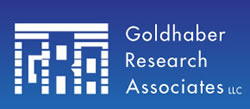In the November, 2012 issue of this newsletter, I wrote that the FDA was investigating reports of deaths due to
the intake of energy drinks and was determining if energy drinks were safe. Earlier this month, the FDA issued
a harsh warning against energy drinks and supplements containing the stimulant dimethylamylamine (DMAA),
telling consumers to stay away from it while adding that the agency was "using all available tools at its
disposal" to ensure that it is no longer sold. This is a formidable task because we as a nation spend more than
$12.5 billion a year on energy drinks, shots and drink mixes. Although seven other countries, including Canada,
had previously banned supplements containing DMAA, these products had remained widely available at
supplement stores in the United States, including GNC.
Dr. Pieter Cohen, an assistant Professor at Harvard Medical School who studies dietary supplements believes
the FDA should have acted earlier, "We've had hundreds of millions of dollars spent on products that should
never have been on the marketplace to begin with," Dr. Cohen told the NY Times on April 12. "There's no
reason the FDA should have waited to warn the public of the dangers of consuming the ingredient."
The FDA sent letters to ten companies manufacturing supplements containing DMAA and all but one, USPlabs,
makers of the dietary supplements OxyElite Pro and Jack3d, had complied. On April 16 USPlabs, in an apparent
course change emailed a statement to marketers saying it will tweak the products' formulas and remove DMAA.
According to their statement, "USPlabs stands by the safety and legality of its products containing the dietary ingredient I ,3-DMAA. We disagree with the FDA's position ... The company has nevertheless concluded for business reasons to phase out products containing 1,3-DMAA."
Supplements that contain DMAA are still available online and at some dietary supplement stores, but the FDA
advises consumers not to use them. As of April 11, the FDA had received 86 reports of illnesses or death associated
with the ingredient. The reports indicate only that patients developed symptoms or died after or while
using the product and do not mean the ingredient specifically caused the health problems, according to an
article in the April 17 issue of the Marine Corps Times. The U.S. Army had begun a study of DMAA in 2012
after two soldiers died of apparent heart failure during physical training in 2011 at Ft. Bliss, Texas. The Army
concluded that DMAA use was a contributing factor in both deaths. The FDA has warned that any product containing
DMAA is "particularly dangerous with caffeine."
Feel free to pass this issue of the Goldhaber Warnings Report on to any friend or colleague.
Dr. Gerald M. Goldhaber, the President of Goldhaber Research Associates, LLC, is a nationally recognized expert in the fields of Political Polling and Warning Label Research. His clients include Fortune 500 companies, as well as educational and governmental organizations. He has conducted hundreds of surveys, including political polls for candidates running for U.S Congress, Senate, and President. Dr. Goldhaber also served as a consultant to President Reagan's Private Sector Survey for Cost Control.
©Copyright - All Rights Reserved
DO NOT REPRODUCE WITHOUT WRITTEN PERMISSION BY AUTHOR.











